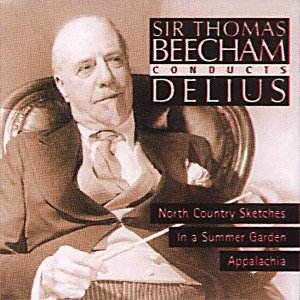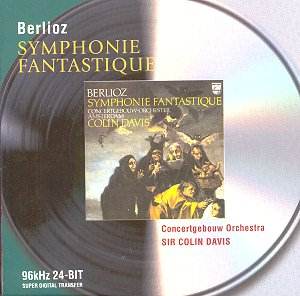 Composer: Frederick Delius
Composer: Frederick Delius
Works: North Country Sketches (1914), In a Summer Garden – Rhapsody (1913), Appalachia (1902)
Performers: Royal Philharmonic Orchestra, Sir Thomas Beecham (conductor)
Recording: EMI Studio 1, 14 Feb 1949 (North Country Sketches), 27 Oct 1951 (In a Summer Garden), 29 Oct, 6 Nov, 7, 13 Dec 1952 (Appalachia)
Label: Sony SMK 89429
Frederick Delius stands as a distinctive figure in the pantheon of English music, his works often characterized by lush harmonies and evocative landscapes that reflect his deep connection to nature. The present collection showcases three of Delius’s significant compositions, each bearing the hallmark of his unique style. Notably, “North Country Sketches” provides a fascinating juxtaposition to the more typically sun-drenched landscapes associated with Delius, grounding itself in the cooler, moorland atmosphere of the north, while “In a Summer Garden” and “Appalachia” explore themes of transience and pastoral beauty, emblematic of Delius’s broader oeuvre.
Sir Thomas Beecham’s interpretation of these works is imbued with a rich understanding of Delius’s musical language. The “North Country Sketches,” structured in four movements representing the seasons, is particularly noteworthy. Beecham’s conducting reveals the balmy yet bittersweet character of this piece, with the orchestral colors shimmering through the somewhat chilly textures inherent to the northern landscape Delius sought to evoke. The first movement, “Winter,” opens with a somber yet reflective tone, where Beecham’s nuanced control allows the woodwinds to sing with an ethereal beauty that hints at the solitude of the moorlands. The subsequent movements unfold with a sense of inevitability, each season seamlessly transitioning into the next, reflecting not only the natural cycle but also the transient nature of time itself.
The recording quality, a product of its era, presents its own unique charm. While the mono sound may not match modern standards, it retains a certain warmth and immediacy that complements the music’s emotional depth. The slightly noisy surfaces of the “North Country Sketches”—deriving from its 78 RPM origins—add a layer of authenticity, inviting listeners to appreciate the historical context of these performances. Indeed, the clarity in the orchestration is impressive; the strings and woodwinds emerge with a brightness that highlights Delius’s intricate counterpoint. For instance, the banjo-like motifs in “Appalachia” resonate with a vividness that evokes the American landscapes that inspired the work, showcasing Beecham’s adeptness at drawing out the unique characteristics of Delius’s instrumentation.
“In a Summer Garden,” with its lush, rhapsodic lines, diverges from the more austere sketches, presenting a sensuousness that is both inviting and reflective. Here, Beecham captures the essence of Delius’s impressionistic style, weaving the orchestral fabric with delicate precision. The descending figures, reminiscent of dewdrops, are rendered with a fluidity that seems to embody the very essence of summer. The recording benefits from a clear delineation of orchestral forces, allowing for the interplay of thematic material to emerge vividly.
Comparatively, while other conductors such as Barbirolli and Hickox have delivered commendable performances of Delius’s works, they often prioritize grandeur over the delicacy that Beecham brings to the table. Beecham’s interpretative choices—his subtle rubatos and dynamic contrasts—serve to enhance the ephemeral qualities of Delius’s music, creating a listening experience that resonates with the themes of fleeting beauty and nostalgia.
The booklet accompanying this release, penned by Graham Melville-Mason, provides an insightful analysis of the pieces, reinforcing the historical significance of these recordings. Sony’s presentation, with its understated yet elegant design, further honors the legacy of Beecham’s interpretations.
The careful balance of technical prowess and emotive depth displayed in this recording of Delius’s works reaffirms Beecham’s preeminence as an interpreter of this repertoire. The combination of historical context, interpretative insight, and sonic clarity makes this collection not only a valuable addition to the catalog of Delius recordings but also an essential listening experience for those seeking to understand the profound beauty of his music. The artistry of Sir Thomas Beecham shines through, revealing the timeless allure of Delius’s sound world.



